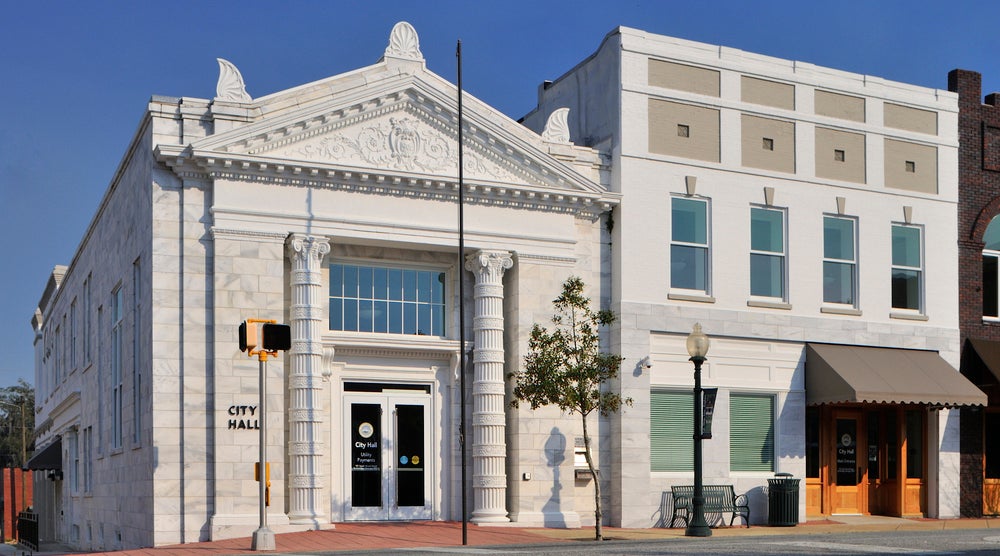Too many Smiths foil the plot
Published 3:56 pm Friday, August 14, 2009
It’s not easy being a Smith.
When a Smith gives his name, clerks act suspicious.
Just to be nasty, some clerks might ask, “How do you spell it.?”
Writing checks, renting cars, ordering a book, reserving a table, usually prompted, “Oh, one of those…” responses.
When a Smith meets a Smith, you will rarely hear or ever hear one say, “Oh, we must be related.” We know we are not.
But we do get quite often, “One of the Smith brothers, eh?” We are not. (cough, cough.).
There are some regular Smiths who stand out. We have our own minority group. The Jim Smith Society meets annually for fun and frolic, highlighted by a softball game with Jim Smith playing each position, including batter and umpire. You may have seen national TV coverage of the event. It always makes the networks.
Smiths are to be respected. There are more than 2 million of us in this country. There are 116 of us listed in the Bainbridge phone book, two of which named Jim.
Smith lineage tracks back hundreds of years.
In the days of the King Henrys one and two, the village Smith was a busy tradesman making metalwork for knights actively engaged in the holy wars. Anyone involved in any other trade, always had to deal with a Smith to do the final metal work, hence, the name became synonymous with respect, strength and good health. We also had the biggest families.
As we became more numerous, many of us attempted to distinguish our names by modifying the spelling, but a Smith is still a Smith, as described in this little known passage—
“O rash mortal. Disguise thyself as thou wilt, thou art a Smith still…pure and simple undefiled, the true worshiper will ever feel thy presence; thou art still recognizable; assume and mask thou wilt, or even veil the time-honored features, yet thou art a Smith, Smyth, Smyththe, Smithett, Smithies, Smithsone, Smythers, Smithurst, Smythwaite, Szhinxmyhdljhskikoff; those and a thousand other combinations still are modifications, free and easy complications of the prime original; its powers of adaption to all requirements and fancies surpass comprehension.”
Not having much luck changing the spelling of the last name, Smiths adopt weird first names.
Throughout the phone books of America, researchers have chronicled Smiths with fancy first names: Osie, Queenie, Topsie, Birdie, Dovie, Worthy, Joy, True, Bright, Pleasant, Jewel, Early, Sterling, Polite, Smart, Voyd, Dub, Gad, Ovid, Fleta, Cassius, Aurelius, Cicero, Brutus, Green, Pink…
The first Smith in America was John the Captain, chaser of Pocahontas. But they didn’t leave any descendants. Siring the first Smith family in the New World was entrusted to another John, born in England in 1614 who came to New England in 1630. He founded Barnstable and Sandwich, Mass., married Susannah Hinckley and sired 13 children.
Mark Twain used a clever device in his The Celebrated Jumping Frog, in which he dedicated the book to John Smith. Thinking anybody who had a book dedicated to him would surely buy it, Twain sat back and awaited “for the princely affluence to burst upon the author.” The Johns were not fooled.
History tells us that the first pair of bloomers was stitched by Elizabeth Smith.
Joseph Smith’s mythical vision gave us the book of Mormon, basis of the Mormon religion and the begatting of the state of Utah.
Jefferson Randolph Smith got his nickname “Soapy” because of a con game involving bars of soap and money that he practiced on the streets of Denver during the 1880s.
James Monroe Smith was president of Louisiana State University who eventually found himself in prison for manipulating university’s funds for personal use.
Henry Smith was the first provisional governor of Texas, Charles designed the first hanging railroad bridge near Canon City, Colo.; Major O.J. invented the newspaper syndicate in 1882; and Horace collaborated with Daniel Wesson on the invention of the Smith and Wesson revolver.
There was another Charles who did OK with a hair restorer elixier made from Burdock root, Peruvian wood balsam, lemon juice, castor oil, alcohol, oil of roses and a dash of rainwater.
But perhaps the best story of Smith is as old as creation.
Adam, now getting old and crotchety, had decided to leave the garden and see the world. Before leaving, he thought it appropriate to bestow names upon his descendants, now huge in number. He took a seat on a hill and had them pass in review, giving them names. At last, exhausted in vocabulary, and growing weary with the work, Adam turned to the heavens with an appealing eye and cried: “O lord, I am weary; let the rest of them be named Smith.”
Like I said, it’s not easy being a Smith, but we do command historical and Biblical respect.





